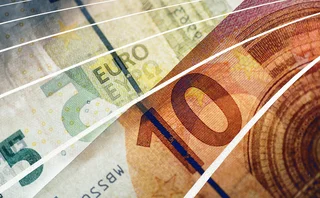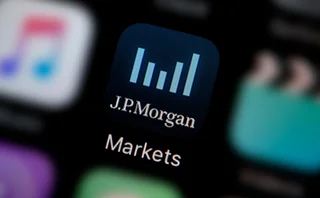
How FVA saved the cross-currency swap
Funding benefits have slashed pricing for some uncollateralised trades

If you want to understand the impact of funding costs and benefits on derivatives pricing, the place to look is the cross-currency swap market, where increasingly fierce competition among dealers has been accompanied by the widespread adoption of the funding valuation adjustment (FVA).
Looked at purely in terms of bank capital, the cross-currency swap is bordering on toxic. In its classic application – to transform a bond issue from one currency to another – it is popular with corporate treasurers, meaning trades tend to be long-dated, chunky and uncollateralised. The counterparty exposure does not wind down during the life of the products, because there is an exchange of principal at maturity. Those features are penalised by Basel III.
Speaking to dealers and their clients in mid-2012, it looked like the writing was on the wall. One European bank that shared its pricing with Risk at the time claimed the cost – in basis points running – would more than triple, from 5.2bp to 18bp, for an A-rated corporate to execute a $100 million notional euro/US dollar cross-currency swap. Treasurers said they were using the product less – and worried they might have to stop altogether – while senior traders predicted "a renationalisation of markets".
The answer appeared both obvious and implausible – corporates should collateralise. The rise of FVA has inverted that argument in some cases.
Where a dealer is out-of-the-money on an uncollateralised trade with a client, it will not have to post margin, but will be receiving cash from the collateralised hedge – which can be on-lent to the bank's treasury. The funding benefit adjustment (FBA) this creates can be significant in some cases; imagine a trade in which a dealer expects to be out-of-the-money for much of its life, has higher-than-average funding costs and is facing a highly rated customer. In these situations, dealers say, FBA can wipe out the implied capital costs.
It wasn't until 2014 that most dealers revalued their derivatives books to incorporate these effects. Today, uncollateralised cross-currency swaps have become less problematic, and the market for them more competitive.
It's difficult to feel entirely comfortable about this. Ultimately, banks are arguing that they are, in some cases, better off facing uncollateralised counterparties. That stops being true when the counterparty defaults, of course. It also raises questions about the size of the FBA dealers are calculating – and this remains an inexact science.
As competition for lucrative corporate business grows, there is a danger banks will go too far. There were worrying signs of this last year, as our lead story describes, with many traders claiming their rivals are starting to give discounts based on the bank's own default risk – a practice with which many remain profoundly uncomfortable.
Only users who have a paid subscription or are part of a corporate subscription are able to print or copy content.
To access these options, along with all other subscription benefits, please contact info@risk.net or view our subscription options here: http://subscriptions.risk.net/subscribe
You are currently unable to print this content. Please contact info@risk.net to find out more.
You are currently unable to copy this content. Please contact info@risk.net to find out more.
Copyright Infopro Digital Limited. All rights reserved.
You may share this content using our article tools. Printing this content is for the sole use of the Authorised User (named subscriber), as outlined in our terms and conditions - https://www.infopro-insight.com/terms-conditions/insight-subscriptions/
If you would like to purchase additional rights please email info@risk.net
Copyright Infopro Digital Limited. All rights reserved.
You may share this content using our article tools. Copying this content is for the sole use of the Authorised User (named subscriber), as outlined in our terms and conditions - https://www.infopro-insight.com/terms-conditions/insight-subscriptions/
If you would like to purchase additional rights please email info@risk.net
More on Markets
Rethinking P&L attribution for options
A buy-side perspective on how to decompose the P&L of index options is presented
Buy side would welcome more guidance on managing margin calls
FSB report calls for regulators to review existing standards for non-bank liquidity management
Citi halves swaptions book with US retail funds
Counterparty Radar: Mutual funds and ETFs cut exposures by 22% in Q4
Who’s winning the €STR futures race? Depends how you measure
CME, Eurex and Ice all claim to be leading, but experts say it’s too early to pick a winner
CDS review seeks to tackle conflicts ‘elephant’
Isda AGM: Linklaters proposes overhaul for determinations committee - including independent members
Saudi Arabia poised to become clean netting jurisdiction
Isda AGM: Netting regulation awaiting final approvals from regulators
Buy side looks to fill talent gap in yen rates trading
Isda AGM: Japan rate rises spark demand for traders; dealers say inexperience could trigger volatility
JP Morgan’s new way to trade FX overlays
Hybrid execution method allows clients to put dealers in competition via a single trading agreement








